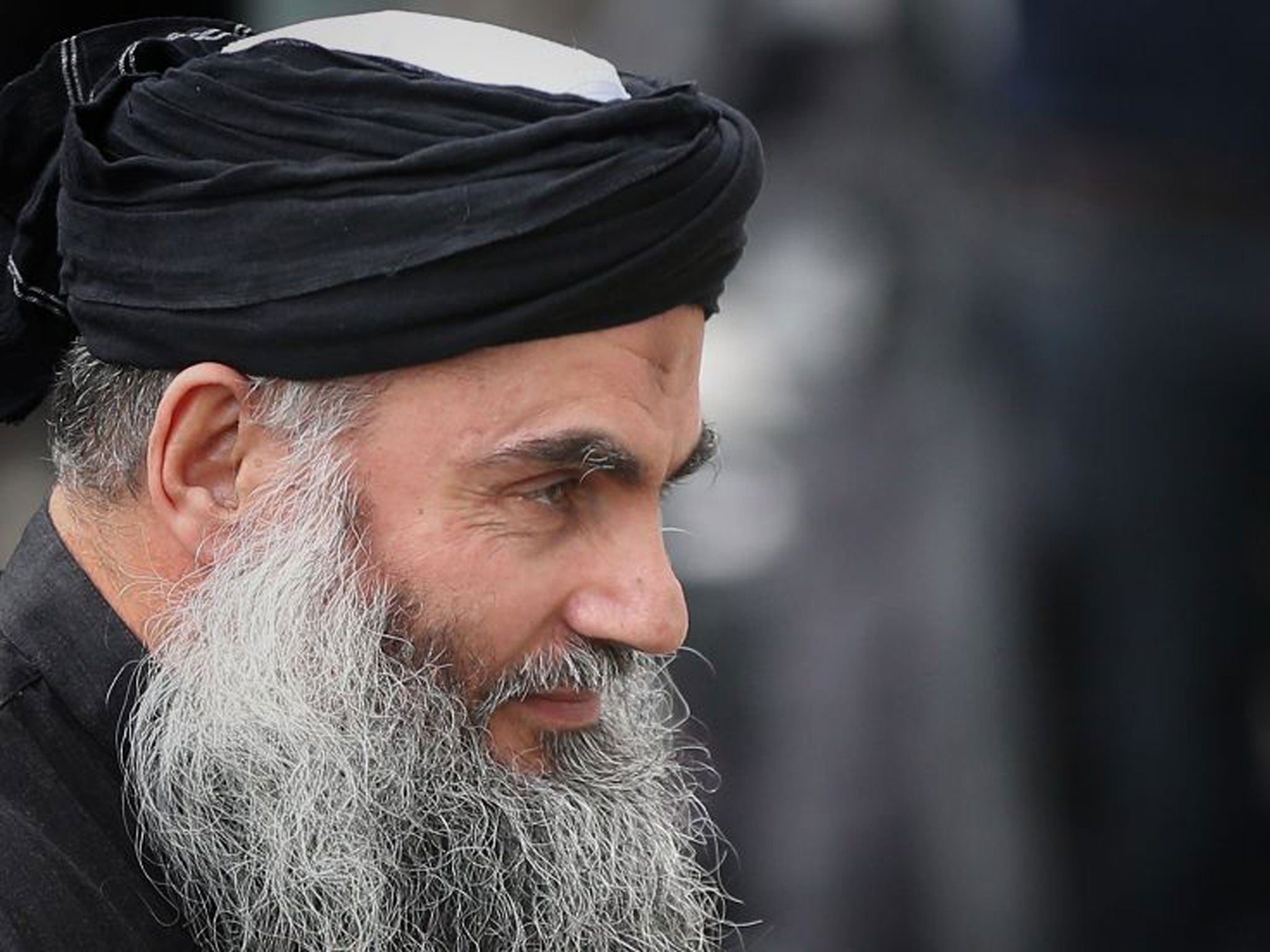Jordan removes last hurdle after approving treaty designed to trigger removal of radical cleric Abu Qatada from UK

Your support helps us to tell the story
From reproductive rights to climate change to Big Tech, The Independent is on the ground when the story is developing. Whether it's investigating the financials of Elon Musk's pro-Trump PAC or producing our latest documentary, 'The A Word', which shines a light on the American women fighting for reproductive rights, we know how important it is to parse out the facts from the messaging.
At such a critical moment in US history, we need reporters on the ground. Your donation allows us to keep sending journalists to speak to both sides of the story.
The Independent is trusted by Americans across the entire political spectrum. And unlike many other quality news outlets, we choose not to lock Americans out of our reporting and analysis with paywalls. We believe quality journalism should be available to everyone, paid for by those who can afford it.
Your support makes all the difference.The Jordanian parliament has approved a treaty with the UK designed to trigger the removal of radical cleric Abu Qatada, the Home Office has said.
The agreement, unveiled by Home Secretary Theresa May in April, aims to allay fears that evidence extracted through torture will be used against the terror suspect at a retrial.
Last month, Qatada unexpectedly volunteered to leave the country as soon as the treaty between the UK and Jordan is ratified by both countries.
The agreement has been approved by both houses of the Jordanian parliament but must still be signed off by the country's King Abdullah. The UK Government expects the treaty to be ratified in Britain by June 21.
A Home Office spokesman said: "The Government remains committed to securing Qatada's deportation as quickly as possible.
"We are pleased the Jordanian parliament has approved the treaty and we await its full ratification by the Jordanian government and the completion of ratification procedures in the UK."
The Government has been trying to deport Qatada to Jordan, where he was convicted of terror charges in his absence in 1999, for around eight years.
In a bid to address concerns raised by immigration judges about the use of torture in Jordan, Mrs May revealed that a new agreement had been drawn up with the country.
But the Home Secretary warned that, even when the treaty is fully ratified, it will not necessarily mean that Qatada will be on a plane to Jordan within days. The case remains open to appeal.
Qatada is currently behind bars in London's Belmarsh prison after breaching a bail condition which restricts use of mobile phones and other communication devices.
The Special Immigration Appeals Commission (Siac) previously heard that a USB stick understood to belong to Qatada's oldest son contained "jihadist files" made by the "media wing of al Qaida".
Qatada is also being investigated by Scotland Yard over suspected extremist material found during the search of his home.
The Metropolitan Police passed on the material to Danish authorities to reportedly investigate a connection with a controversial Islamic publisher.
The Government has been trying to deport Qatada to Jordan, where he was convicted of terror charges in his absence in 1999, for around eight years.
In a bid to address concerns raised by immigration judges about the use of torture in Jordan, Mrs May revealed that a new agreement had been drawn up with the country.
But the Home Secretary warned that, even when the treaty is fully ratified, it will not necessarily mean that Qatada will be on a plane to Jordan within days. The case remains open to appeal.
Qatada is currently behind bars in London's Belmarsh prison after breaching a bail condition which restricts use of mobile phones and other communication devices.
The Special Immigration Appeals Commission (Siac) previously heard that a USB stick understood to belong to Qatada's oldest son contained "jihadist files" made by the "media wing of al Qaida".
Qatada is also being investigated by Scotland Yard over suspected extremist material found during the search of his home.
The Metropolitan Police passed on the material to Danish authorities to reportedly investigate a connection with a controversial Islamic publisher.
PA
Join our commenting forum
Join thought-provoking conversations, follow other Independent readers and see their replies
Comments